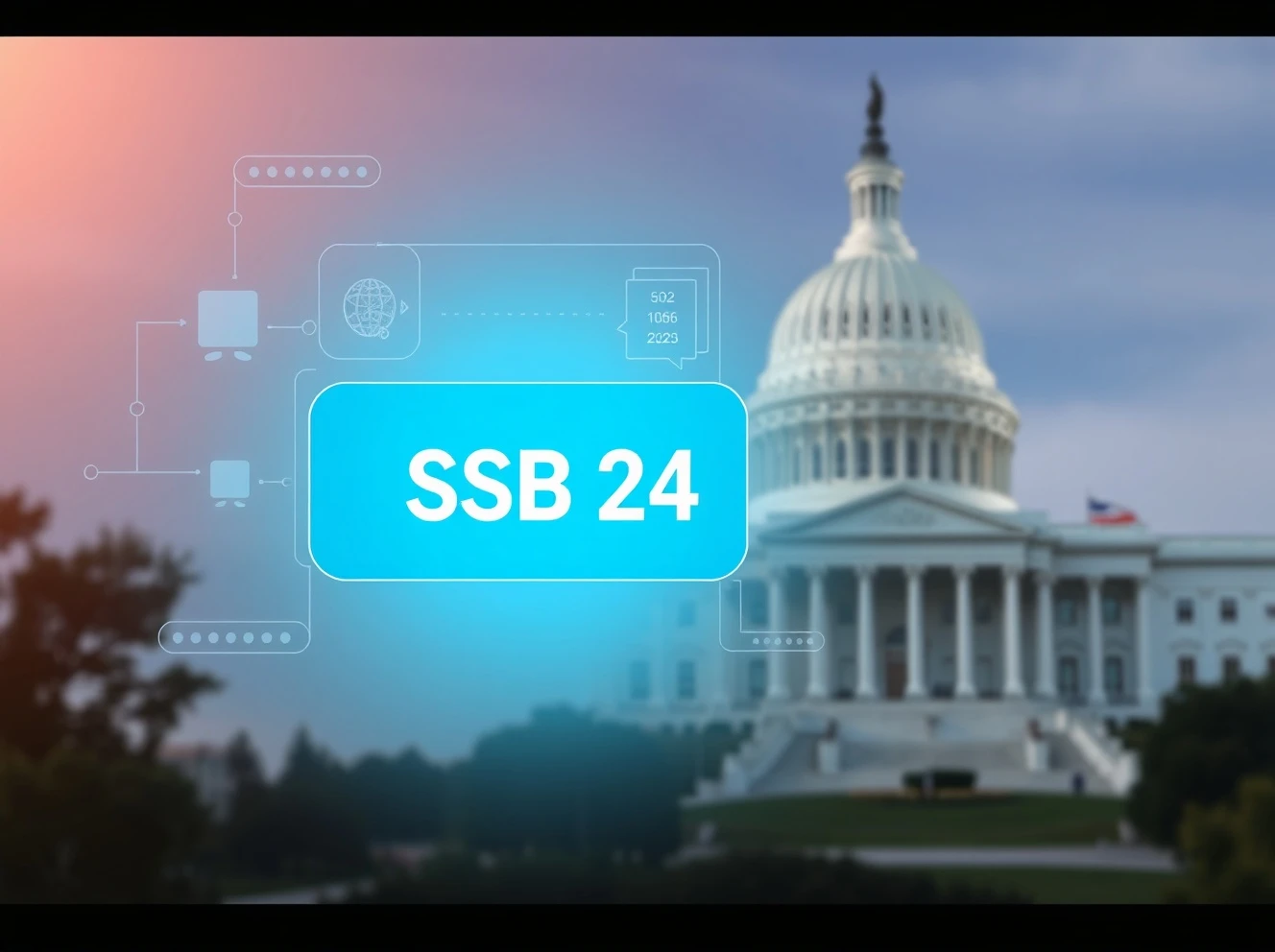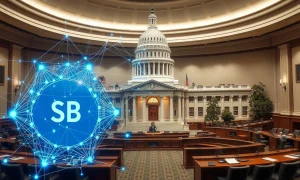California lawmakers have taken decisive action to regulate AI companion chatbots, passing groundbreaking legislation that could set national standards for artificial intelligence safety and accountability. The bipartisan bill represents one of the most significant moves to protect vulnerable users from potential AI harms.
California’s AI Companion Chatbots Legislation Advances
The California State Assembly approved SB 242 with strong bipartisan support. This AI companion chatbots regulation measure now moves to the state Senate for final consideration. Governor Gavin Newsom could sign the bill into law, making California the first state to establish comprehensive AI companion chatbots safety standards.
Key Provisions of the AI Companion Chatbots Bill
The legislation specifically targets AI companion chatbots that provide adaptive, human-like responses. These systems must implement several critical safety measures:
- Recurring user alerts every three hours for minors reminding them they’re interacting with AI
- Prevention of harmful conversations involving suicidal ideation, self-harm, or explicit content
- Annual transparency reporting requirements for AI companies
- Legal accountability allowing lawsuits for violations with damages up to $1,000 per incident
Timeline for AI Companion Chatbots Implementation
If approved, the new rules would take effect January 1, 2026. Reporting requirements would begin July 1, 2027. This timeline gives AI companion chatbots operators adequate preparation time while addressing urgent safety concerns.
Legislative Background and Motivation
State senators Steve Padilla and Josh Becker introduced the bill in January. The legislation gained momentum following the tragic death of teenager Adam Raine, who committed suicide after prolonged chats with OpenAI’s ChatGPT that involved discussing and planning his death.
Industry Response and Opposition
Major technology companies have expressed concerns about the regulatory approach. Silicon Valley firms are investing millions in pro-AI political action committees to support candidates favoring lighter regulation. Only Anthropic has publicly supported the broader SB 53 transparency bill.
National Regulatory Context
California’s move coincides with increased federal scrutiny of AI platforms. The FTC is preparing to investigate how AI chatbots impact children’s mental health. Texas Attorney General Ken Paxton has launched investigations into Meta and Character.AI regarding mental health claims.
Balancing Innovation and Protection
Senator Padilla emphasized that innovation and regulation aren’t mutually exclusive. “We can support development that has benefits,” he stated, “while providing reasonable safeguards for the most vulnerable people.” The bill represents a carefully negotiated balance between these competing priorities.
FAQs About California’s AI Companion Chatbots Regulation
What exactly are AI companion chatbots under this legislation?
The bill defines them as AI systems that provide adaptive, human-like responses capable of meeting users’ social needs through conversation.
When would the new regulations take effect?
If signed into law, the safety protocols would become effective January 1, 2026, with reporting requirements starting July 1, 2027.
Which companies would be affected by this legislation?
Major AI companion chatbots providers including OpenAI, Character.AI, and Replika would need to comply with the new requirements.
What penalties could companies face for violations?
Individuals could file lawsuits seeking injunctive relief, damages up to $1,000 per violation, and attorney’s fees.
How does this compare to other AI regulation efforts?
California’s approach is more specific than federal proposals, focusing specifically on companion chatbots rather than AI systems generally.
What safety measures are required for minor users?
Platforms must provide reminders every three hours that users are interacting with AI, not a real person, and suggest taking breaks.








